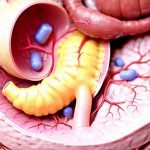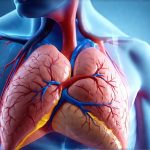That rumbling sound your stomach makes after eating – often described as gurgling, growling, or even bubbling – is something most people experience regularly. It can sometimes be unsettling, prompting questions about what’s happening inside our digestive systems and whether the noise signals a problem. Often, it’s perfectly normal and simply a sign that digestion is underway. However, understanding why your stomach gurgles after every meal requires delving into the complex processes of the gastrointestinal tract and recognizing the various factors that can contribute to these sounds. It’s not always about hunger; in fact, many instances are related directly to the mechanics of breaking down food.
The digestive system is a remarkably active environment, constantly working even when we aren’t actively eating. This continuous activity generates gas as part of the natural breakdown process and movement of food along the digestive tract. The gurgling sounds we hear are primarily caused by peristalsis, the wave-like muscular contractions that push food through our system. These contractions, coupled with the movement of fluids and gases, create audible noises. While these sounds are usually subtle, they become more noticeable after a meal as digestion ramps up. It’s important to remember that experiencing stomach gurgling is an incredibly common phenomenon; it’s rarely something to be overly concerned about unless accompanied by other symptoms like pain, bloating, or changes in bowel habits.
The Mechanics of Digestion and Sound Production
The process of digesting food isn’t silent. From the moment you take your first bite, a cascade of events begins that generates both physical movement and gaseous byproducts. Chewing initiates mechanical digestion, but it’s really within the stomach where things get noisy. Here, strong muscles churn and mix food with gastric juices containing enzymes to break down proteins. This churning action – peristalsis in full swing – is a major contributor to gurgling sounds. As partially digested food moves into the small intestine, further breakdown occurs with the aid of digestive fluids from the pancreas and bile from the liver. This continued movement and mixing create even more sound.
The gases themselves come from several sources. Swallowing air while eating (which everyone does to some degree) contributes a little bit, but the primary source is bacterial fermentation in the large intestine. Our gut microbiome – the trillions of bacteria living within us – breaks down undigested carbohydrates, producing gases like hydrogen, carbon dioxide, and sometimes methane. These gases need to be released, and as they move through the digestive tract, they create bubbles and contribute to gurgling sounds. Different foods produce different amounts of gas; for example, beans and cruciferous vegetables (broccoli, cabbage) are well-known gas producers.
The intensity of the gurgling can also depend on individual factors such as how quickly you eat, your hydration level, and even your stress levels. Eating too fast can cause you to swallow more air, while dehydration can slow down digestion and lead to increased fermentation in the large intestine. Stress can affect digestive motility, potentially amplifying sounds or causing discomfort. Essentially, a gurgling stomach is often simply an auditory manifestation of a healthy, functioning digestive system.
Food-Related Factors Influencing Gurgling
Certain foods are more likely to trigger noticeable gurgling than others due to their composition and how they’re processed by the body. High-fiber foods, while beneficial for overall health, require significant bacterial fermentation in the colon, resulting in increased gas production. Lactose (in dairy products) and fructose (found in fruits and honey) can also cause issues for individuals with sensitivities or intolerances, leading to malabsorption and subsequent gurgling sounds.
- Foods high in FODMAPs (Fermentable Oligosaccharides, Disaccharides, Monosaccharides And Polyols) are notorious for causing digestive distress and noticeable noises. These sugars aren’t fully absorbed in the small intestine, reaching the large intestine where they’re fermented by bacteria. Examples include onions, garlic, apples, pears, and wheat products.
- Carbonated beverages introduce bubbles directly into the digestive system, immediately increasing gas levels and resulting in more pronounced gurgling.
- Fatty foods can slow down digestion, giving bacteria more time to ferment carbohydrates, and potentially leading to increased sound production.
It’s important to note that sensitivity to these foods varies greatly from person to person. What causes significant gurgling for one individual may not have the same effect on another. Keeping a food diary and tracking which meals are associated with excessive sounds can help identify potential trigger foods, allowing you to make informed dietary adjustments.
Understanding Peristalsis in Detail
Peristalsis isn’t just about moving food down the line; it’s a carefully orchestrated process regulated by the nervous system. The digestive tract has its own intrinsic nervous system – often called the “second brain” – which controls muscle contractions independently of the brain, though influenced by it. These contractions are coordinated along the entire length of the GI tract, ensuring efficient and effective digestion.
- The strength and frequency of peristaltic waves vary depending on the location within the digestive system and the type of food being processed. For example, more forceful contractions occur in the stomach to break down food into smaller particles.
- Disruptions to peristalsis can lead to a variety of digestive issues, including constipation, diarrhea, bloating, and altered gurgling sounds. Conditions like irritable bowel syndrome (IBS) often involve abnormal motility patterns.
- The sound produced by peristalsis is directly related to the force of these contractions and the amount of air or fluid present in the digestive tract. A more active and vigorous process will naturally generate louder noises.
When Gurgling Might Indicate Something More
While usually benign, persistent or unusually loud gurgling accompanied by other symptoms warrants attention. If you experience frequent gurgling alongside pain, bloating, diarrhea, constipation, nausea, vomiting, or unintentional weight loss, it’s best to consult a healthcare professional. These could be signs of an underlying digestive disorder such as:
- Irritable Bowel Syndrome (IBS): This chronic condition affects the large intestine and can cause abdominal pain, bloating, gas, diarrhea, and constipation.
- Small Intestinal Bacterial Overgrowth (SIBO): An excessive amount of bacteria in the small intestine can lead to fermentation and increased gas production.
- Food intolerances or allergies: Reactions to certain foods can disrupt digestion and trigger inflammation, leading to digestive symptoms including gurgling.
It’s crucial to differentiate between normal digestive sounds and those that indicate a potential health concern. Self-diagnosing is never recommended; professional evaluation provides accurate diagnosis and appropriate treatment. A doctor may recommend tests such as blood work, stool analysis, or endoscopy to determine the cause of your symptoms.
Hydration and Digestive Health
Staying adequately hydrated plays a vital role in maintaining optimal digestive function and minimizing gurgling sounds. Water helps soften stool, making it easier to pass and reducing constipation, which can contribute to increased fermentation and gas production. It also aids in the breakdown of food and facilitates the movement of nutrients through the digestive tract.
- Aim for at least eight glasses of water per day, though individual needs may vary depending on activity level and climate.
- Avoid sugary drinks, as they can worsen bloating and gas.
- Sip water throughout the day rather than drinking large amounts at once, which can overwhelm the digestive system.
- Foods with high water content, such as fruits and vegetables (watermelon, cucumbers), also contribute to hydration and support healthy digestion. Proper hydration is a simple yet often overlooked aspect of digestive health.
It’s important to remember that gurgling sounds are a natural part of digestion for most people. Understanding the underlying mechanisms and factors that influence these noises can help alleviate concerns and promote a more mindful approach to gut health.


















